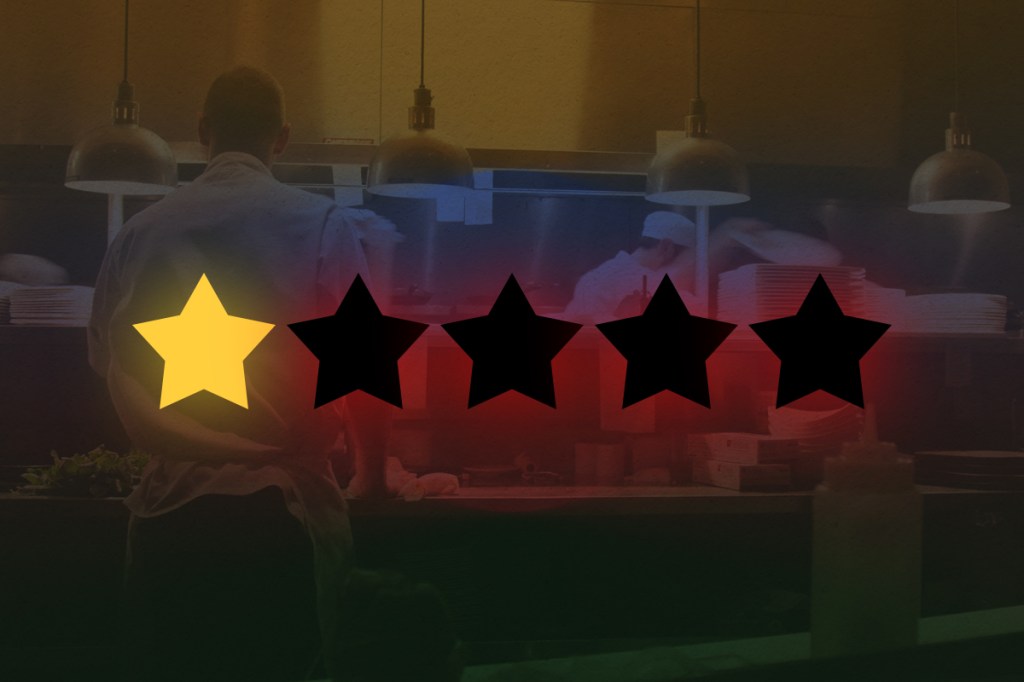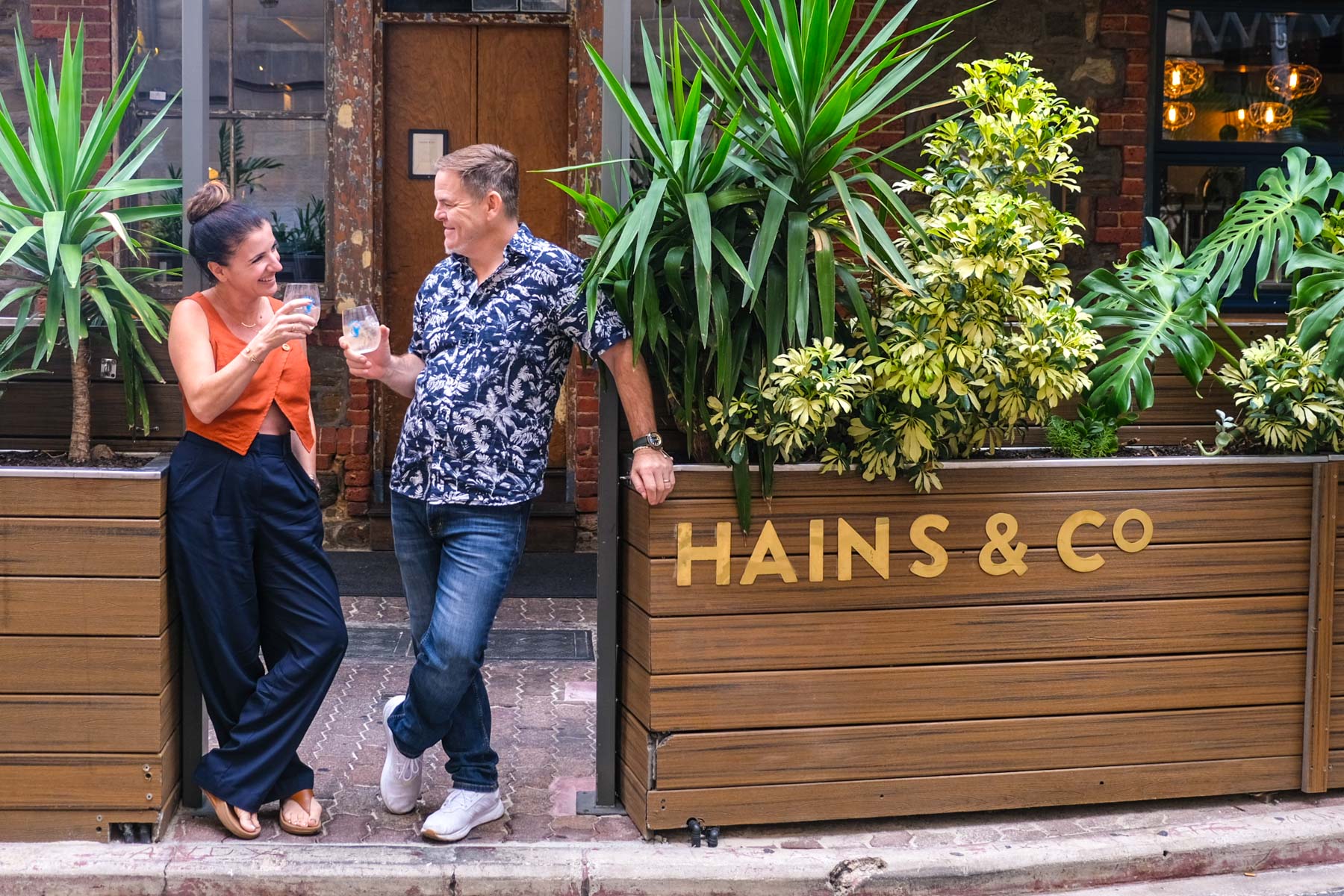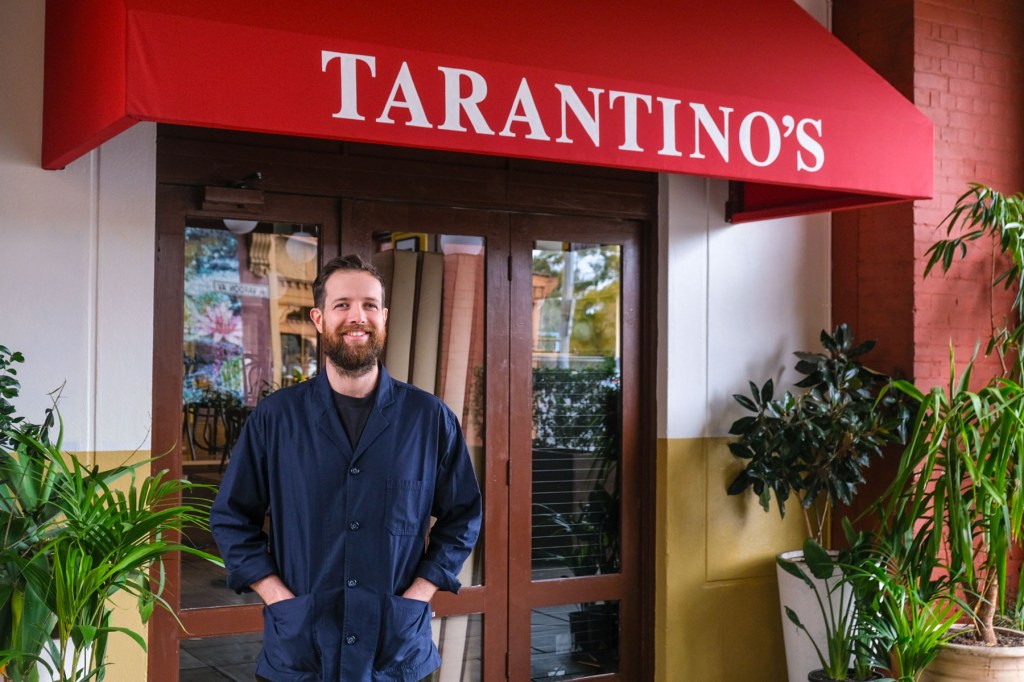‘Everyone’s a critic’: The weaponisation of Google reviews

Hospitality owners have spoken out about how detrimental unreasonable Google reviews can be, and say it has a larger impact on a small business than what most may assume.
When we spoke to the co-owners of Hains & Co, they told us “people are actively using Google one-star reviews to really penalise you”, rather than using the platform for constructive feedback.
Marissa Galatis-Motteram explains how prior to Google reviews gaining prominence, people would address the problem in person.
“If you had an issue or you had a complaint, you’d say ‘can I speak to the manager please? I’m not happy with this’. [We’d reply] ‘drinks not right? Let me fix it for you’,” Marissa says.
“Now people are actively using Google one-star reviews to really penalise you.”
Marissa says she doesn’t think “people realise the damage that does to small businesses” when giving out one-star Google reviews.
“Everyone’s a critic,” Marcus Motteram says.
“And every one-star review takes us 20 five-star reviews to pretty much get back to our average of our 4.6, 4.7 star rating.
“And I know that when I travel, what I do? I go to Google and I look at what places are really good, and I look at those things, and then I’ll go through the reviews.
“You can see when somebody’s being unreasonable and everything. But we hope that people look at those things, but sometimes they don’t.”
Marcus and Marissa agree that people have turned to Google reviews rather than complaining directly to the staff “because it’s easy”.
You might like
“It’s more comfortable. I don’t have to deal. I save face,” Marissa says.
“It’s like keyboard warriors.”
Marcus says it’s unfair as the business owner doesn’t have the opportunity to rectify the issues.
“And previously, if they’d called us or written to us, we’ve got an ability to speak directly to them,” Marcus says.
“It gives us a chance to make up if there’s been some error. We don’t get that opportunity.”

The couple recall an unreasonable incident with a soda-less mojito, which resulted in a one-star Google review.
“They didn’t even buy the drink, and the person that bought the drink was happy with the drink,” Marcus adds.
“I’ve had people come to the door, and I could see…they’re not right, so I say ‘sorry, guys, it’s not right. You’re a bit loud. I can see you’ve had a few drinks. I don’t think it’s the best fit’.
“And I’ve just been really nice about it, rather than calling out that we can’t let them in because of our licensing and everything like that.
“They’re like ‘right, we’re going to give you a one-star review’.”
Oliver Brown of The Big Easy Group – with businesses like Anchovy Bandit, Bandit Pizza & Wine, La Louisiane and more – says one of the more frustrating instances is where patrons will place their star score based on one individual experience.
“When you see people write a review [that says] ‘I’ve been here three times and have loved it every single time, and I experienced last night [and it] wasn’t the same’ – that’s a frustrating one” he says.
“Because it’s like, okay, you loved it last time, but you chose to not praise us until you had a not so positive experience.”
Subscribe for updates

Oliver says that Google reviews are “really, really important” to a hospitality business.
“You type in any venue, or you type in ‘best restaurants’, and click on a restaurant, the first thing that pops up, even before you go to the website, is that Google business page with the reviews and the star rating sitting there in front of everyone,” Oliver says.
“Unless they come directly through Instagram or something, it’s probably the first idea that they’re making their mind upon is that star rating and those reviews.”
When considering the cost-of-living crisis and the ripple effect this has on the hospitality scene in general, the result of Google reviews means more.
“They just want to make sure they’re going to somewhere where they’re going to enjoy themselves for the money they spend, and I think that looking at reviews can be a decision maker for them as to where they want to go and spend their money,” Oliver says.
“So having, I guess, unfair, detrimental reviews steers people away, or could steer people away, which might not necessarily be merited.”

But Oliver sees some positives with negative Google reviews as it can be an “opportunity to spin it in your favour”.
“Our stance is if people don’t like something because that’s our product, or that’s the way we do it, if they think something’s too expensive, then it’s a great opportunity for us to say and explain the quality of product we use and back why it is that price,” he says.
“If there’s not a genuine mistake on our part, I think it’s always a good opportunity to use it to put your values on your sleeve a little bit, because people do read it and do look at it.”
Oliver also recommends writing back “an unemotional response”, but one that is “clear in your values, as opposed to trying to have a shot back”.
“People are very attached to their businesses and venues, and…they might want to attack back or they might feel like, if I don’t have anything nice to say, I won’t say anything nice at all,” he says.
“But I actually think it’s a lot better to actually put your side up, because publicly, people will read it, and you need to have two sides of the story there, I think.”
But for consumers, he encourages “people to read both sides of the story” when looking at businesses through Google.
“People can look through and make up their own mind,” he says.
“But I think that as the world of the internet takes over more, I think people need to learn to be discerning and get as much information as they can to make up their own mind. I don’t think you can just look at the star rating necessarily. I think you do have to go a little bit deeper.”
Oliver says directly emailing with feedback is best practice for people with bad experiences.
“We want people to have a good experience. So direct email when something is negative, it just allows us to actually rectify the situation without it being a public shaming so much,” Oliver says.





